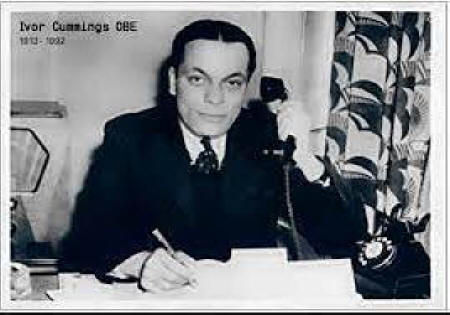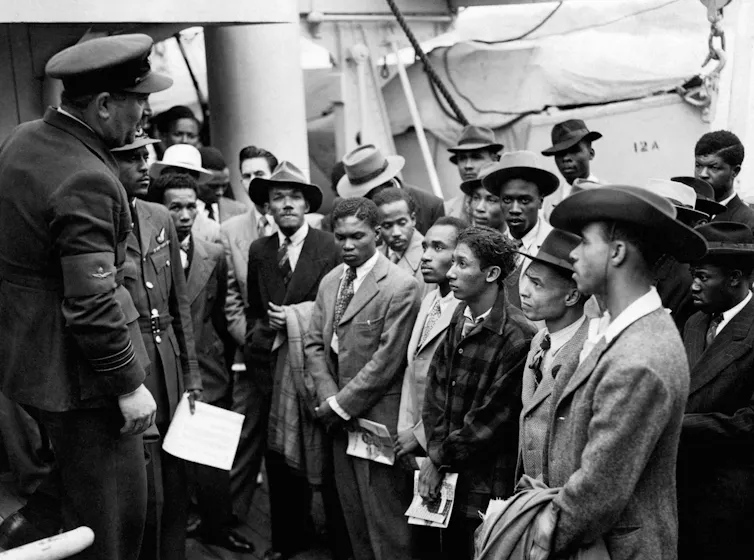March 30th: Today’s Feature
- webbworks333
- Mar 30
- 4 min read
March
Ivor Gustavus Cummings, (December 10, 1913-October 17, 1992), was a British civil servant with Sierra Leonean roots. In the year 1941, he made history by becoming the inaugural black official within the British Colonial Office, breaking barriers and paving the way for future generations of black civil servants.
Throughout his career, Cummings played a significant role in advocating for equality and diversity within the workplace, earning him the title of the 'gay father of the Windrush generation'. His contributions and achievements have left a lasting impact on the civil service sector, inspiring others to strive for inclusivity and representation in positions of authority.

Life
Ivor Cummings, born in West Hartlepool on 10 December 1913, had a unique upbringing with his father, Ishmael Cummings, a doctor and the son of a wealthy merchant from Sierra Leone, and his mother, Johanna Archer, an English nurse. Growing up in Addiscombe, Ivor formed a close bond with the widow of composer Samuel Coleridge-Taylor, who was a relative by marriage to the family.
Having faced bullying at Whitgift School, Ivor attempted to join his father in Freetown but ultimately felt like an outsider and returned to England. He excelled academically at Dulwich College, showcasing his intellectual capabilities. However, due to financial constraints, the family was unable to support Ivor's dream of becoming a doctor.
Cummings' upbringing in Croydon alongside his mother exposed him to a predominantly white environment, making him the only non-white individual in his surroundings. This unique experience greatly influenced his strong belief in assisting individuals of colour, as stated by Val Wilmer, the author of his obituary, who had the opportunity to interview Cummings both at his home and during his hospital stay.
In addition to his dedication towards black people, Cummings also provided guidance and support to those who shared his other minority status - homosexuality. Remarkably, he lived his life openly and authentically, even before the decriminalisation of homosexuality in England and Wales through the Sexual Offences Act of 1967. Among the notable individuals Cummings mentored was Paul Danquah, a talented actor-turned-lawyer with a mixed heritage background. Notably, Paul Danquah was the son of J.B. Danquah, a prominent figure in Ghana's history as one of the founding statesmen during its independence.
According to Wilmer, he had a fondness for reprobates and “highfalutin’” individuals. Despite his air of superiority and his manner of speaking, he possessed a surprising amount of humility.

According to Mike and Trevor Phillips, the authors, Cummings possessed a meticulous and refined nature, exuding an air that brought to mind the sophistication of Noel Coward. His habit of chain-smoking was accompanied by the use of a lengthy cigarette holder, adding a touch of elegance to his demeanour. Furthermore, he had a charming way of addressing visitors as "dear boy," further emphasising his distinctive and refined character.
Career
After a brief stint working as a clerk in Freetown, Ivor returned to England in search of medical scholarships. Instead, he became the warden of Aggrey House, a centre for colonial students, organising various activities and events. His involvement led to some rivalry with the West African Students' Union hostel, and there were even reports of controversial incidents involving residents of Aggrey House.

Despite the challenges, Ivor Cummings embraced London's vibrant nightlife in the 1930s, becoming a part of 'the group', a circle of African intellectuals that included notable figures like the American singer, John Payne and the British composer, Reginald Foresythe. His career took a turn when he joined the Colonial Office in 1941, and his appointment was hailed as a step towards combating racial discrimination in Britain.
Serving as the secretary of the Advisory Committee on the Welfare of Colonial Peoples in the United Kingdom, Ivor played a crucial role in addressing the housing needs of colonial students.
Ivor dedicated his post-war efforts to recruiting African nurses for the National Health Service. In 1947, he traveled to Lagos for official business and encountered racial discrimination when the Greek owner of the Bristol Hotel denied him a room. This incident caused a scandal that received widespread coverage in the British press. In recognition of his contributions, Ivor was awarded the OBE in the 1948 Birthday Honours.
Additionally, he played a crucial role in welcoming and assisting West Indian immigrants who arrived on the Empire Windrush in June 1948, helping them find accommodation and employment. His decision to utilise a former air raid shelter beneath Clapham Common as temporary housing for the Windrush arrivals ultimately led to Brixton becoming a permanent hub for the African Caribbean community in Britain.
Ivor's dedication to fostering international relationships and supporting post-independence Ghana led him to work for Kwame Nkrumah, training diplomats in Ghana. He also served as a recruitment officer for the Ghana High Commission in London, where he recruited West Indian professionals, including Ulric Cross.
Later in his career, Ivor worked as a training officer for Yengema Diamond Mines in Sierra Leone and as a public relations advisor for the London-based distillers Duncan, Gilbey, and Matheson. Sadly, Ivor passed away from cancer at Westminster Hospital on October 17, 1992.










